Joint meeting of the Tajik-Uzbek Intergovernmental Commission on Delimitation and Demarcation of the State Border was held in Ferghana
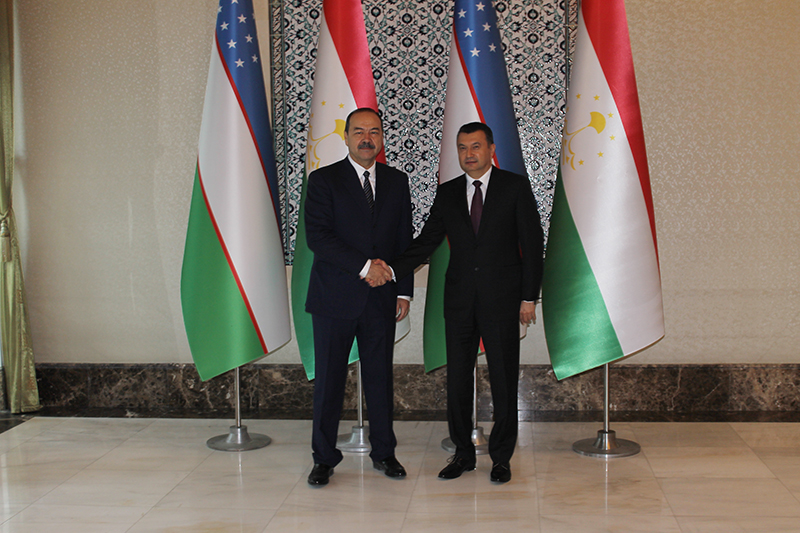
DUSHANBE, 26.02.2018 /NIAT “Khovar”/. The next joint meeting of the Tajik-Uzbek Intergovernmental Commission on Delimitation and Demarcation of the State Border was held on February 24 in Ferghana of Uzbekistan. The meeting was chaired by the Prime Ministers of the Republic of Tajikistan and the Republic of Uzbekistan Qohir Rasulzoda and Abdullo Aripov. NIAT “Khovar” has been reported by the Ministry of Foreign Affairs of Tajikistan.
According to the source, the meeting was also attended by members of Governments, heads of ministries, departments and leading economic structures of the two states.
During fruitful talks, which were held in an open, friendly and constructive atmosphere, the heads of parties’ delegations highly assessed the current level of Tajik-Uzbek relations in all spheres of interaction.
It was noted that due to the political will of the Heads of the two states, contacts at the highest and top levels were significantly intensified, an effective exchange of governmental delegations was established, meetings of the Intergovernmental Commissions were successfully held, and mutual exhibitions of industrial products were fruitfully organized in Dushanbe and Tashkent.
The meeting also discussed the issues of passing the project line of the Tajik-Uzbek State Border on separate sections. The parties noted that in a short period it was possible to achieve significant success in the process of delimitation of the State Border.
The participants paid attention to the organizational and content aspects of upcoming events at the top level — the preparation and coordination of a package of bilateral documents, agreements and contracts, planned to be signed during the State visit of the President of the Republic of Uzbekistan Sh. M. Mirziyoyev to Tajikistan on March 2018.
The parties noted a constructive approach to the consideration and resolution of all available issues on the bilateral agenda of the Intergovernmental Commission.











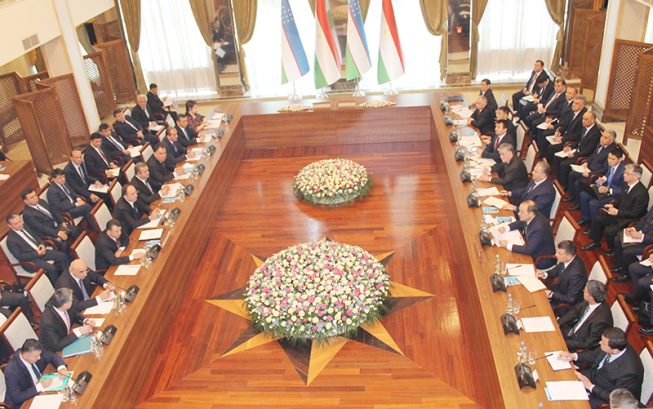
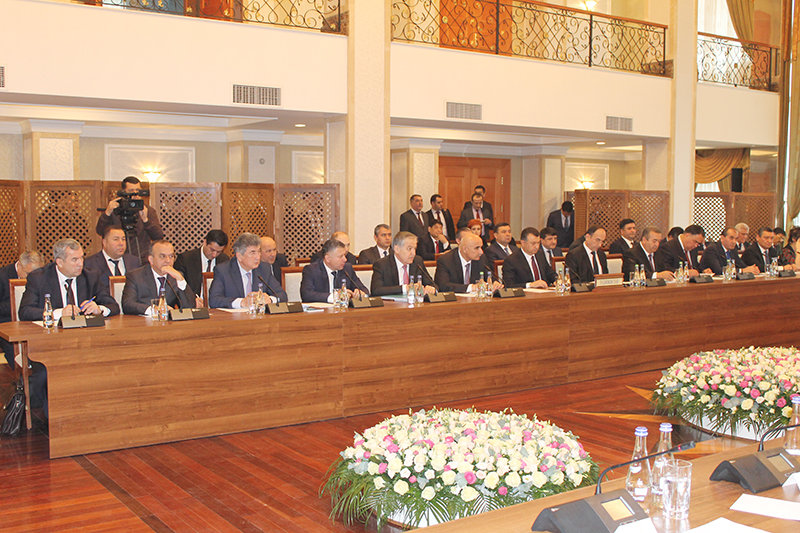
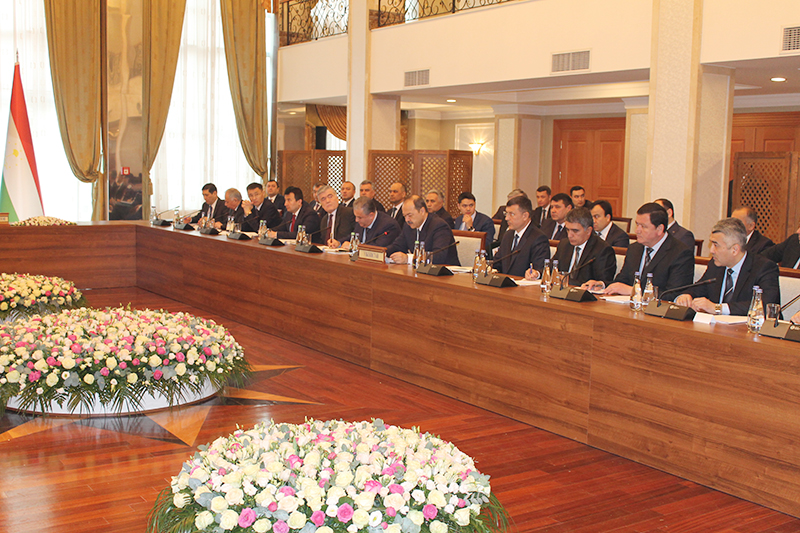
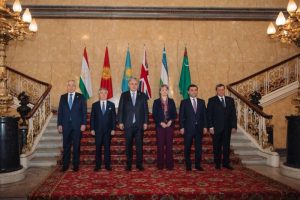 Central Asia, U.K. Hold First C5+1 Foreign Ministers Meeting in London
Central Asia, U.K. Hold First C5+1 Foreign Ministers Meeting in London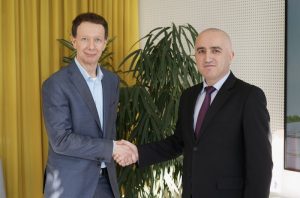 Tajik Ambassador Meets With Wien Energie Chief to Discuss Energy Cooperation
Tajik Ambassador Meets With Wien Energie Chief to Discuss Energy Cooperation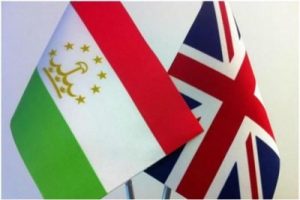 Political Consultations Between the Republic of Tajikistan and the United Kingdom Held in London
Political Consultations Between the Republic of Tajikistan and the United Kingdom Held in London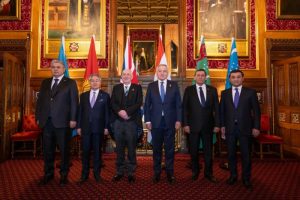 Tajik Foreign Minister Participates in Central Asia–UK Parliamentary Dialogue
Tajik Foreign Minister Participates in Central Asia–UK Parliamentary Dialogue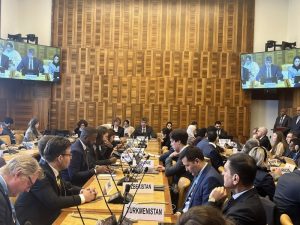 Tajikistan, Qatar host UN side event on digital development and human rights
Tajikistan, Qatar host UN side event on digital development and human rights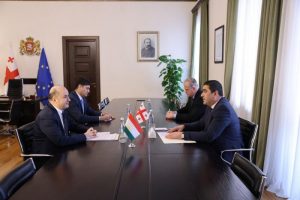 Tajik Ambassador, Georgian Speaker Discuss Expanding Interparliamentary Cooperation
Tajik Ambassador, Georgian Speaker Discuss Expanding Interparliamentary Cooperation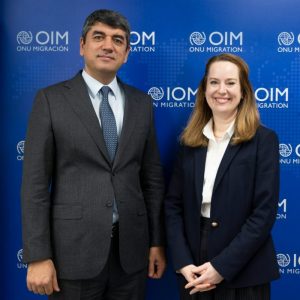 Tajikistan and IOM Discuss Migration Cooperation
Tajikistan and IOM Discuss Migration Cooperation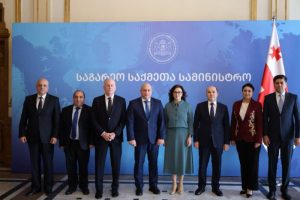 Tajikistan and Georgia Hold Deputy Minister-Level Political Consultations in Tbilisi
Tajikistan and Georgia Hold Deputy Minister-Level Political Consultations in Tbilisi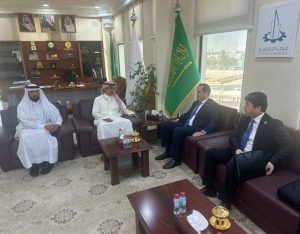 Tajikistan and Saudi Arabia’s Qassim Region Move to Deepen Private Sector Ties
Tajikistan and Saudi Arabia’s Qassim Region Move to Deepen Private Sector Ties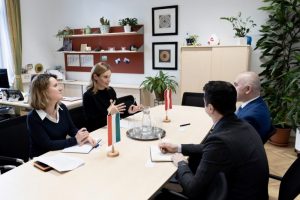 Tajikistan and Austria Review Cooperation Plan for 2026
Tajikistan and Austria Review Cooperation Plan for 2026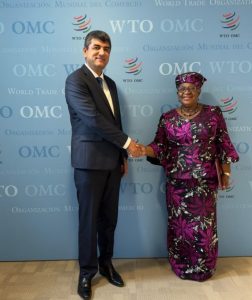 Tajikistan Discusses WTO Commitments and Ministerial Conference Preparations
Tajikistan Discusses WTO Commitments and Ministerial Conference Preparations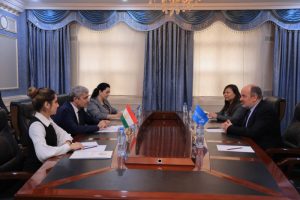 Tajikistan, UNICEF Review Joint Programs on Child and Youth Development
Tajikistan, UNICEF Review Joint Programs on Child and Youth Development














